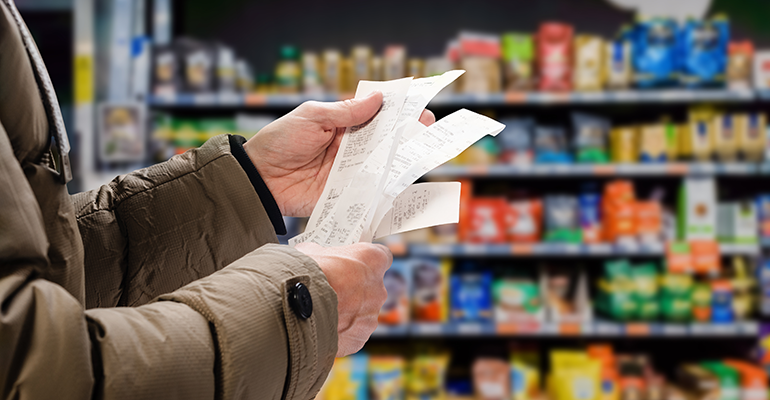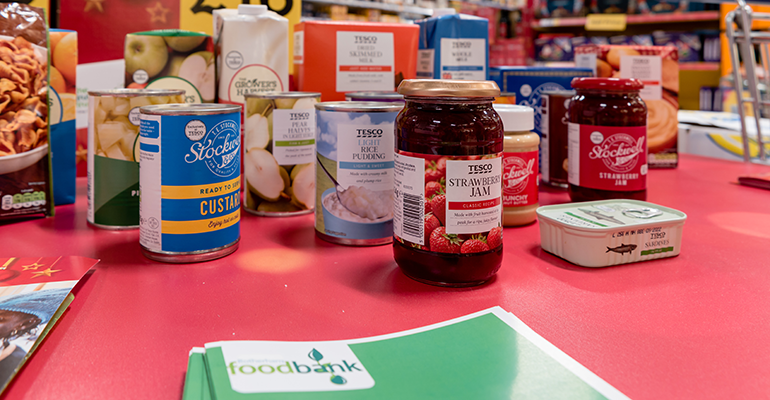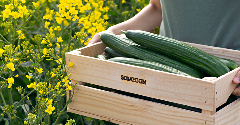News
UK consumer trust in supermarkets falls to nine-year-low
5 Jul 2023
Research by UK consumer review organisation, Which?, reports decreasing levels of trust in the food industry, with two-thirds of shoppers feeling ripped off.
Trust in food has dropped to its lowest level in almost a decade, research by Which?, the UK’s self-proclaimed “consumer champion”, details, following its monthly consumer insight tracker.
Which? is urging supermarkets and convenience stores to stock budget varieties of food products to ease the financial burden on consumers, especially as their dwindling trust comes amid the cost-of-living crisis.

A lack of trust
On 13th June 2023, the organisation shared its recent findings, indicating that consumer trust in supermarkets is less than it has ever been compared to the past nine years.
The findings, which relate to data on consumer trust in groceries in May, represent the lowest since November 2014. Using a Which? scale of -100 to +100, the latest figures show a confidence score of +36. It is 32 points lower than the previous high score of +68, which was recorded in May 2020.
Cost of living impact
Which?’s consumer insight tracker reveals concerns about food prices, worries that are compounded by the cost-of-living crisis. In response, consumers are changing their shopping habits. The tracker found that 57% of consumers said they have bought cheaper goods, 40% have shopped around different stores, and 39% have purchased less expensive items on promotion.
Consumers are struggling to access affordable food from supermarkets and convenience stores. Furthermore, 11% have skipped meals during the day, 7% have prioritised meals for other people in their family and household and 4% have used a food bank.
The University of Leeds Consumer Data Research Centre and Which? have created the Priority Places For Food Index to show where people in the UK are the most vulnerable to food insecurity. These insights pinpoint where consumers are struggling the most with the cost of food around the country, providing further impetus for supermarkets and convenience stores to act.
Affordable and accessible
Consumers without a bigger supermarket to shop in find it even more challenging to buy nutritious food to feed their households. Which? has set up its Affordable Food For All campaign, which is calling on supermarkets to do more to bring own-brand budget items in-store, including to smaller convenience stores.
To date, the campaign has amassed 87,000 supporters who have signed their petition and is also urging supermarkets to increase the transparency of pricing and product offers. “Supermarkets must also provide transparent pricing so people can easily work out which products offer the best value,” said Rocio Concha, director of policy and advocacy at Which?.
“While some supermarkets have engaged with Which?’s Affordable Food For All campaign, their response has been far too limited to date, given the scale of the challenge people are facing,” Which? said in a press release.
Which? is urging all significant supermarkets to act by increasing consumer access to budget goods by introducing and expanding their lines of affordable items, particularly in convenience shops. Through initiatives like the Priority Places For Food Index and Affordable For All campaign, supermarkets can access more data and insights to enable them to prioritise introducing these ranges where consumers need them most.
 © AdobeStock/HASPhotos
© AdobeStock/HASPhotos
“While the whole food supply chain affects prices, supermarkets have the power to do more to support people who are struggling, including ensuring everyone has easy access to basic, affordable budget ranges at a store near them, including smaller stores for consumers who rely on these,” adds Concha.
Convenience store shoppers struggling
In a separate survey of 2000 UK adults, Which? found that two-thirds (67%) feel supermarkets are ripping them off with the prices charged for convenience store goods. Consumers perceive these prices as often being more expensive than those in larger stores and rarely stock budget goods – a reality heightened by the current cost of living crisis. Amid the crisis, affordability and value for money are critical drivers in consumers’ decision-making.
Of the 2000 people asked in the survey, three-quarters (75%) also said they find convenience store food prices too expensive compared to larger supermarkets. In addition, almost half (45%) said finding affordable food in convenience stores is challenging.
Consumers in the Which? survey referenced the cost-of-living crisis and how it impacts their purchases. Over half (51%) of people who rely on convenience stores at least once a week find shopping difficult, financially, amid the crisis. The figure is 16% higher among these convenience store shoppers than consumers overall, with just over a third (35%) expressing the same sentiment.
Stocking budget ranges is a route convenience stores can take to lower the cost burden for consumers. When asked, almost six out of ten (57%) survey participants said having access to budget varieties in-store would help make shopping there more affordable.
Following its research, Which? is calling for convenience stores to lower their barriers to accessibility and affordability for consumers by offering budget options. By providing essentials, Which? states this will help to ensure consumers, particularly those on a low income, are not paying more than they need to, simply because they cannot reach a supermarket.
Related news

UK Government overhauls childhood obesity strategy
21 Nov 2025
The UK Government has announced a new package of measures designed to reverse the nation’s childhood obesity epidemic following the release of statistics revealing the scale of the crisis.
Read more
Nitrites: Pressure grows on UK to follow EU’s lead
20 Nov 2025
Pressure is growing on the UK to follow the EU’s lead after the bloc revised its regulations on the permitted levels of nitrites and nitrates in cured meats.
Read more
How younger consumers are redefining ingredient choices and rejecting brand loyalty
18 Nov 2025
Gen Z and millennial consumers’ preferences for transparency, functionality, and purpose are “redefining the very nature of consumption itself”, says SPINS.
Read more
Soy story: WWF scores UK supermarkets on sustainability efforts
12 Nov 2025
WWF has published its latest “Soy Scorecard”, ranking UK supermarkets’ efforts to combat deforestation and land conversion in their soy supply chains.
Read more
New UPF standard hoped to offer consumers ‘coherence and clarity’
10 Nov 2025
Ingredients companies are being urged to enter “a new era of partnership and innovation” following the launch of the industry’s first non-UPF verification scheme.
Read more
Could plant-based protection replace plastic packaging?
29 Oct 2025
Swedish foodtech company Saveggy has launched an additive-free plant-based protection for cucumbers, offering a waste-free packaging solution for fruit and vegetables.
Read more
Does promoting protein content push up plant-based sales?
27 Oct 2025
Promoting the protein content of meat-free products is a more effective sales strategy than adding carbon labels, a study of UK bakery chain Greggs suggests.
Read more
NMN: An on-trend ‘fountain of youth’ ingredient for anti-ageing products
24 Oct 2025
Dubbed an “on-trend fountain of youth ingredient” by Mintel, NMN is booming in anti-ageing ingestible products in Asia – but regulatory roadblocks are thwarting NPD efforts elsewhere, say experts.
Read more
Will Wicks’ Killer Bar harm the protein bar category?
23 Oct 2025
Joe Wicks’ deliberately dangerous protein bar is fuelling anti-UPF sentiment – but there are concerns that his messaging is misguided and could have unintended consequences.
Read more
Amazon Grocery launch aims to balance quality with affordability
22 Oct 2025
Global e-commerce giant Amazon has introduced a new private-label food brand, combining existing Amazon Fresh and Happy Belly products with new everyday items.
Read more